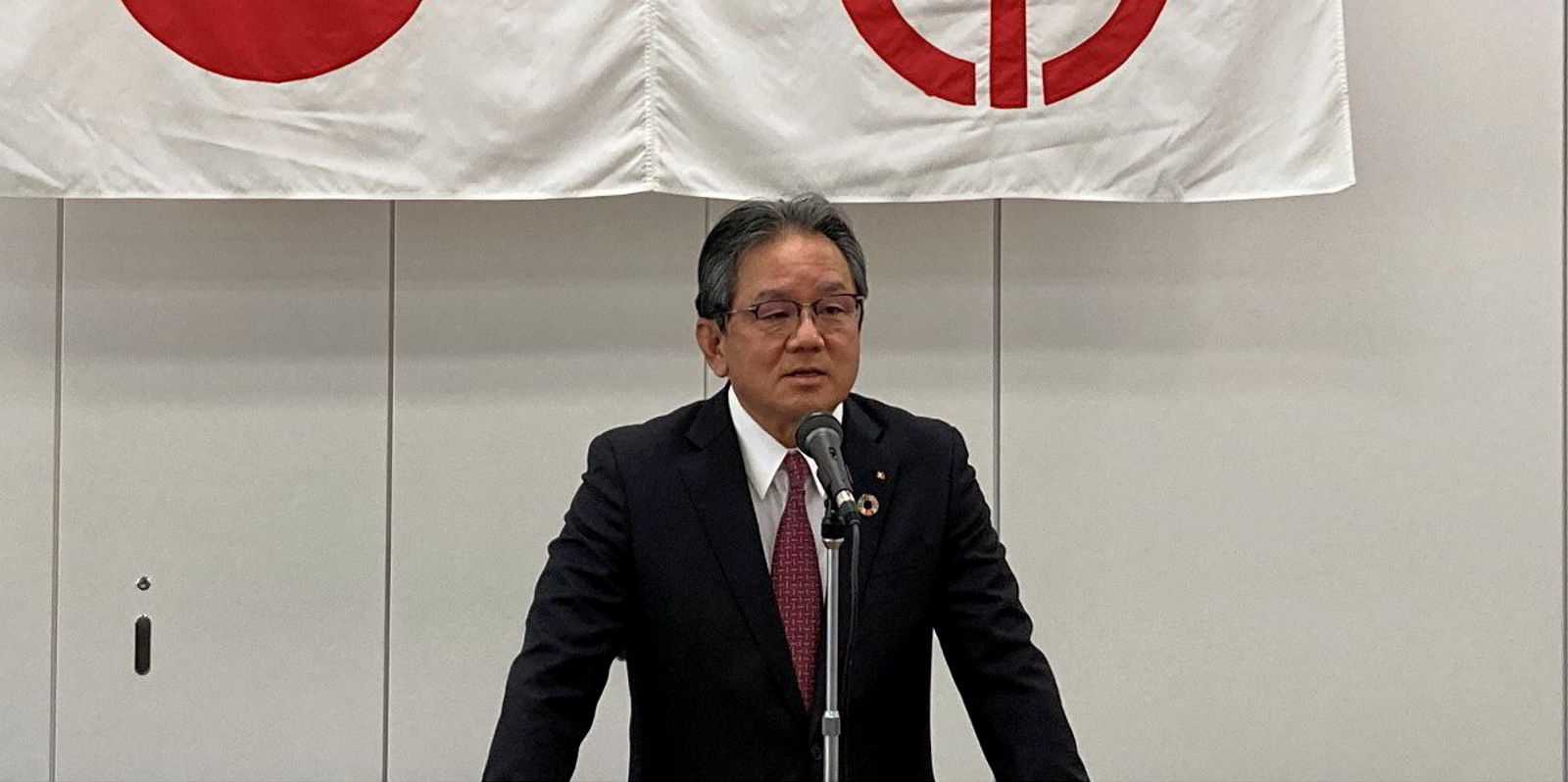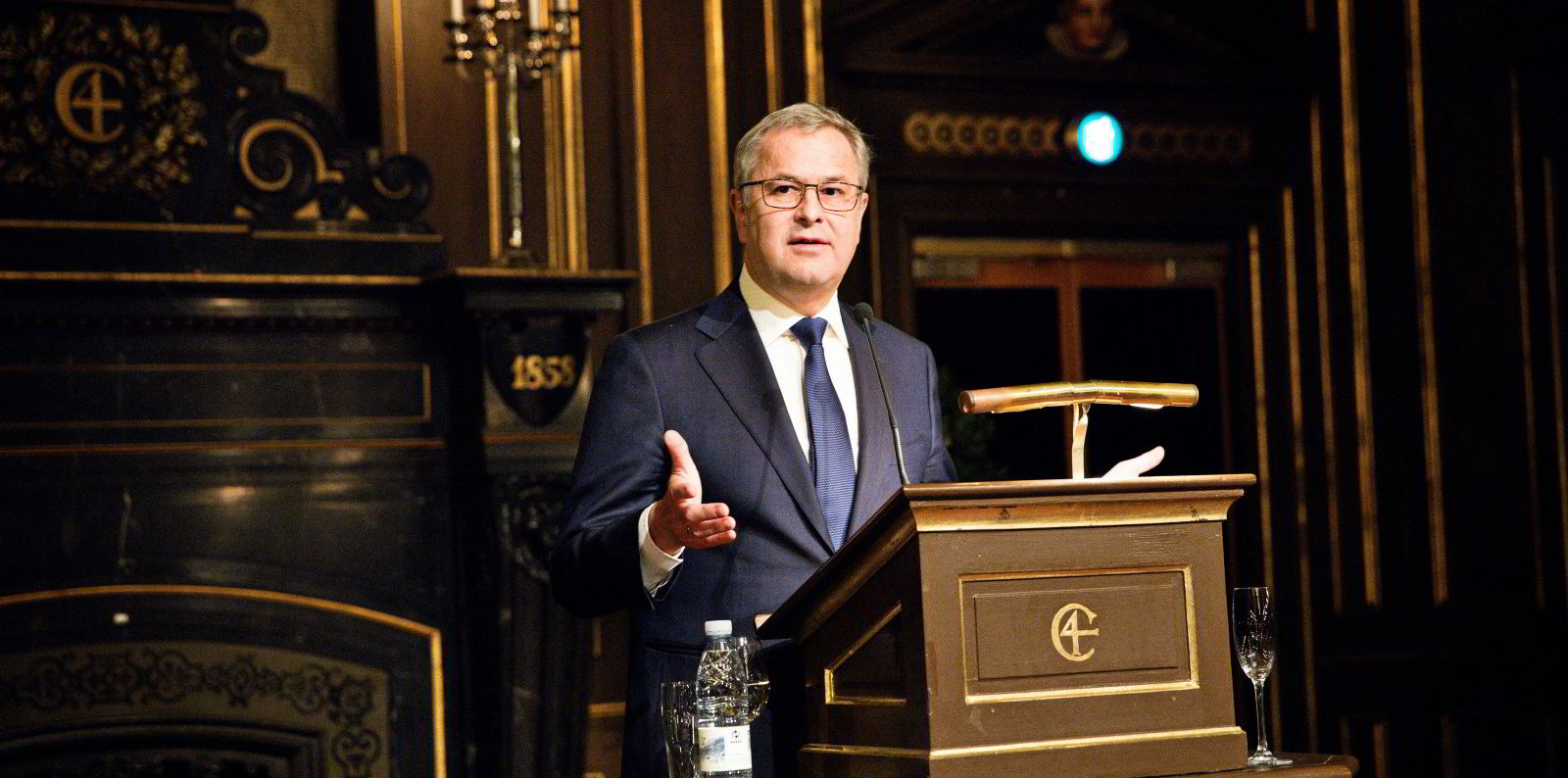London Greek shipowners poured some cold water on the virtuous environmental targets bandied about in their business lately.
“In our industry various organisations and companies are touting their green credentials with the choice of fuels that will power their newbuildings,” Haralambos “Harry” Fafalios, chairman of the Greek Shipping Cooperation Committee (GSCC), said to members in his new year’s speech released on Tuesday.
“However, none of them are really carbon-free and they just kick the can down the road,” Fafalios declared.
Several shipping heavy-hitters have recently announced ambitious revisions to their environmental goals.
Major Japanese shipping player K Line said it aims to reach “net zero” greenhouse gas (GHG) emissions by 2050, from a previous target to halve them by the same deadline.
AP Moller-Maersk announced that it wants to become climate neutral by 2040, 10 years earlier than initially planned.
A large part of such targets relies on alternative fuels like LNG and ammonia, at which Fafalios took potshots.
“LNG is an interim fuel but still carbon-intensive. Green or e-methanol is currently unavailable worldwide in the quantities our industry needs. Ammonia is quite dangerous to the crew if not properly contained,” he said.
“Combustion of ammonia in an internal combustion engine also produces nitrogen compounds far more pollutant than CO2,” he added.
According to Fafalios, engine and ship builders are only “just now” starting to address such technical issues and research is still “at an embryonic stage”.
'Salivating' at green taxes
Greeks, the world’s biggest single shipowning nation, have been busy ordering the latest-spec tanker and bulker newbuildings in recent years.
However, despite occasional exceptions, they have been relatively reluctant to put their energy and money into some of the more technologically far-flung options, like ammonia, which they consider still immature.
Fafalios reiterated past shipowner calls for governments to help subsidise such research with carbon taxes via a research and development fund for the maritime sector.
Governments assembled at the COP26 climate summit were “salivating at the revenues they would collect from an assortment of green levies” but “not a word” was mentioned on technological solutions or about reinvesting carbon tax proceeds into related research, Fafalios said.
Shipowners have been, nevertheless, encouraged by recent moves at the European Parliament to slip provisions for such an Ocean Fund into draft legislation governing the European Union’s Emissions Trading System (EU ETS), which will extend to shipping next year.
Shipowners very rarely praise European Parliament lawmakers but Fafalios welcomed another proposal to include language into the EU ETS that would increase charterers’ liability for emission costs.
“It is encouraging to note that the EU is making noises in that direction,” said Fafalios.
In the grand scheme of things, however, shipowners remain sceptical of EU moves to introduce its own environmental legislation, in a bid to preempt and put the screws on the International Maritime Organization to take similar action.
The EU “has been trying to hijack the debate on green taxes, cut-off dates and other maritime issues”, Fafalios said in the speech.
“Criticising the IMO is the most counterproductive way to move forward,” he added. Only the IMO has “the knowledge and experience” to come up with appropriate solutions, he said.





